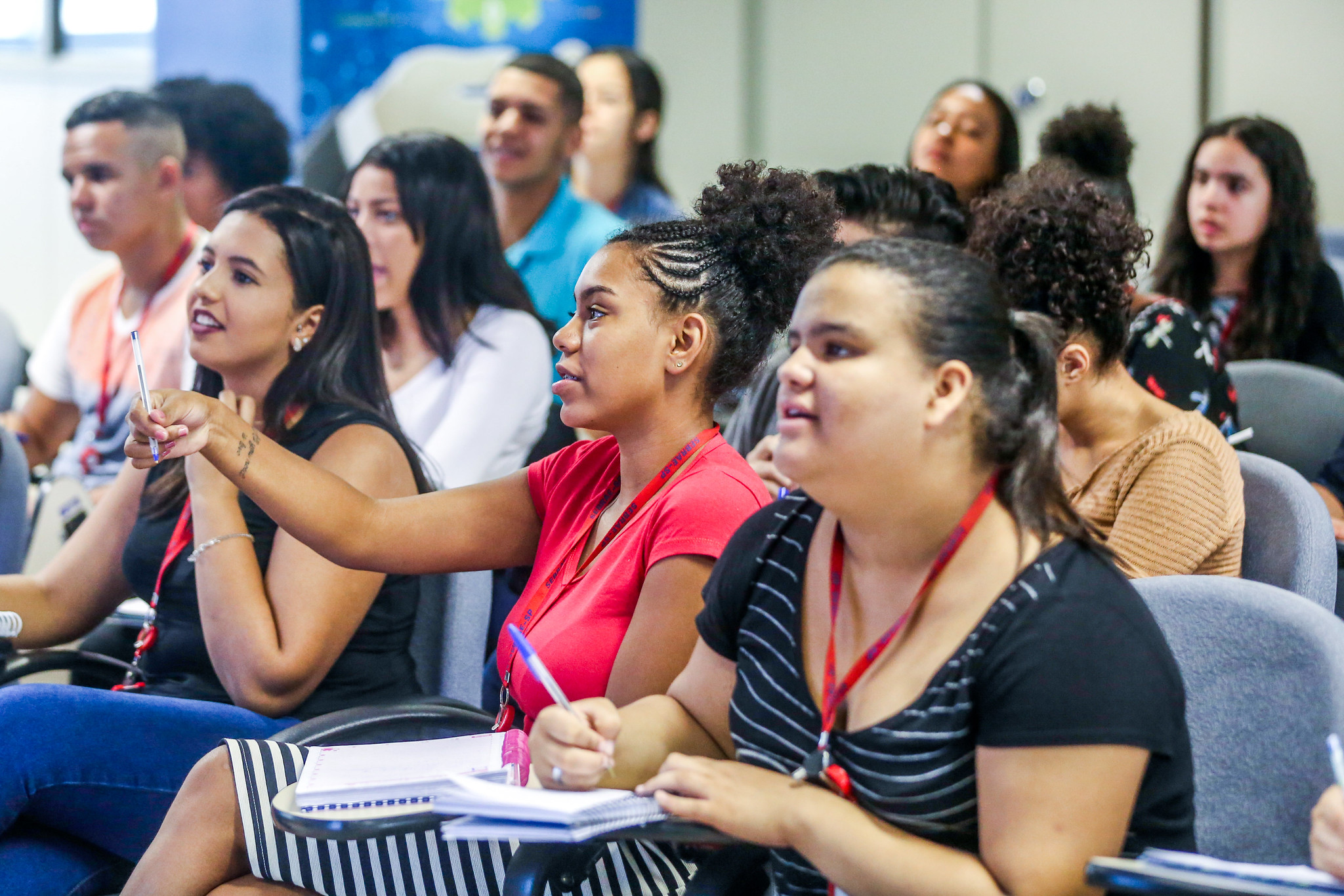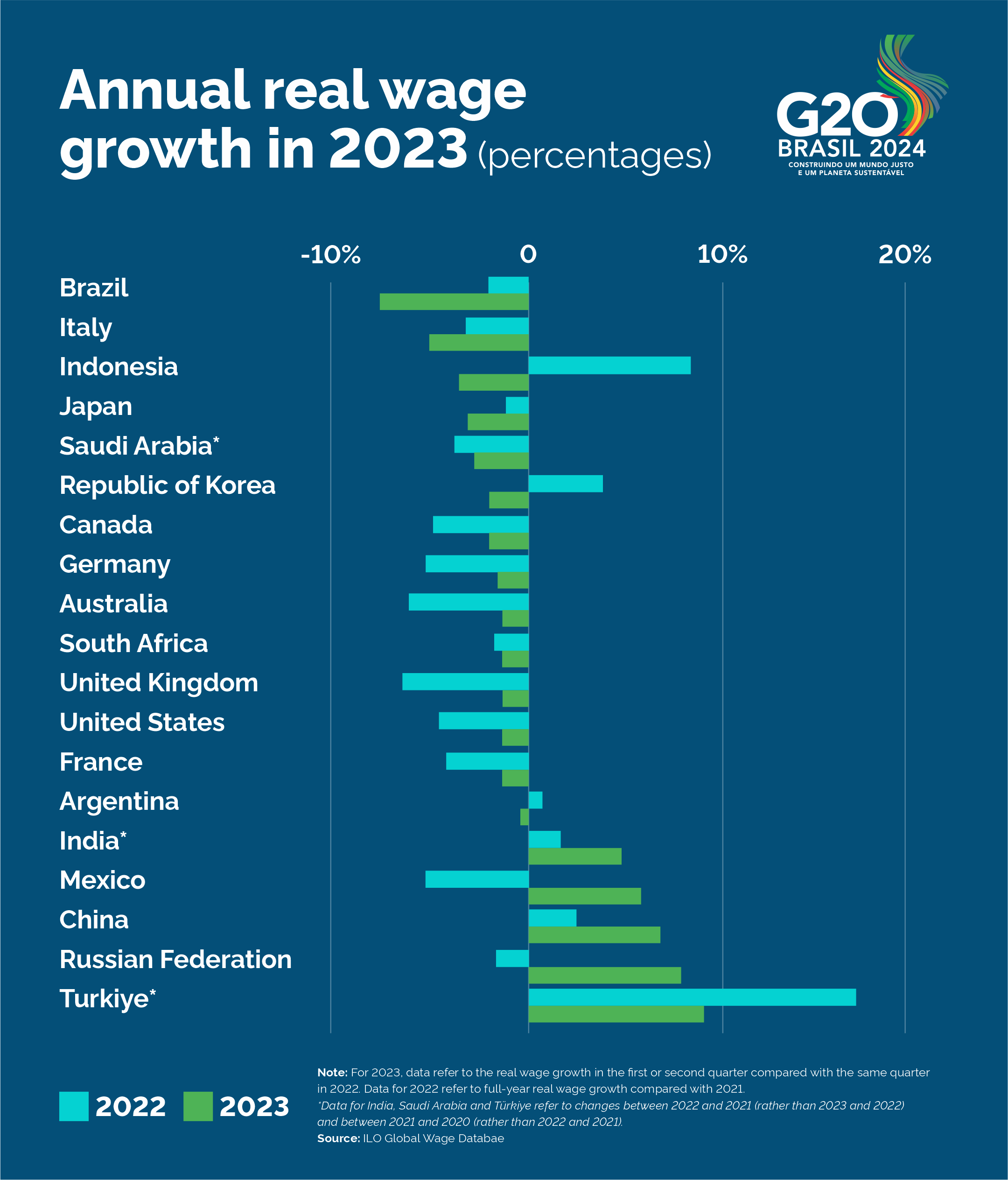ILO: Rising unemployment and inequality are challenges for the G20 in 2024
In a projection for 2024, a report by the International Labor Organization (ILO) reveals that the global unemployment rate is set to rise, along with inequalities. The Employment WG has drawn up guidelines in line with the global scenario and proposes ways out of the worrying scenario

Approximately 435 million workers will be looking for a job by 2024, estimates the World Employment and Social Outlook Report: Trends to 2024 of ILO - International Labor Organization. The study also shows that even with the reduction in unemployment in the post Covid-19 pandemic, salaries have fallen in most G20 countries, as the positive results have failed to keep pace with inflation. For the United Nations agency, the scenario is worrying and unlikely to be improved in the short term.
Among the G20 countries, only China, Russia and Mexico recorded real salary growth in 2023. Last year, the Chinese and Russians still achieved productivity growth among the highest of the member countries. In the others, workers saw their real remuneration fall. The reduction was even more accentuated in Brasil (6.9%), Italy (5%) and Indonesia (3.5%).
Maíra Lacerda e Silva, coordinator of the G20 Employment WG and responsible for the international technical cooperation of Ministry of Labor and Employment of Brasil (MLE), says that the scenario described by the report is a reflection of both the global crisis and structural imbalances in the labor market, which have worsened in problematic contexts. "There has never been gender equality in the labor market, for example. The most vulnerable population tends to suffer more from the impact of the climate and economic crisis. The report names these structural themes, warning that they cannot be resolved in the short term and suggesting that governments make additional efforts to deal with these challenges," Lacerda considered.
"There has never been gender equality in the labor market, for example. The most vulnerable population tends to suffer more from the impact of the climate and economic crisis. The report names these structural themes, warning that they cannot be resolved in the short term and suggesting that governments make additional efforts to deal with these challenges," Lacerda considered.

According to Gilbert F. Houngbo, Director-General of the ILO, global employment trends are worrying as there is still a significant lack of decent work; the number of workers in the informal market has passed the 2 billion mark, registering 2.19 billion in 2023. Currently, more than 241 million workers live in families with a per capita income of less than 2.15 dollars a day.
"Productivity growth and living standards have not improved either. It is particularly worrying that this is happening despite technological progress. We are watching growing imbalances in our economic and social systems, which represents a serious challenge to the goal of an equitable and just transition to a sustainable future," Houngbo emphasized.
The report recommends that, in order to change this scenario, governments must strive for ''effective international coordination to tackle the main economic, ecological and social challenges", with a focus on increasing productivity and quality of life. The text encourages the actions being debated in the G20 on improving the use of multilateral development funds to support weaker economies.
Consensus for solutions
Faced with these challenges, the Employment WG, which composes the G20 Sherpas Trail, seeks to develop actions to create quality jobs and promote decent work, guaranteeing social inclusion to eliminate poverty. Coordinated by Ministry of Labor and Employment during the Brazilian presidency of the forum, the group discusses the influences of technologies and their impact on employment and income, improving the quality of life in society, stimulating diversity and equality between men and women in the world of work.
The coordinator explains that the group is aligned with the reality presented in the UN report and is looking for concrete solutions to overcome the challenges faced by the forum's member countries and its priority actions are to promote decent work as a means of social inclusion and combating poverty. “The goal here is that we think of policies that don't simply seek to increase the occupation rate, but that seek and encourage the creation of quality jobs, which is essential for inclusion and the fight against poverty," Maíra explained.
In addition, the WG wants to propose debates on measures to strengthen the social security system by promoting quality jobs and equality between men and women in the labor market.